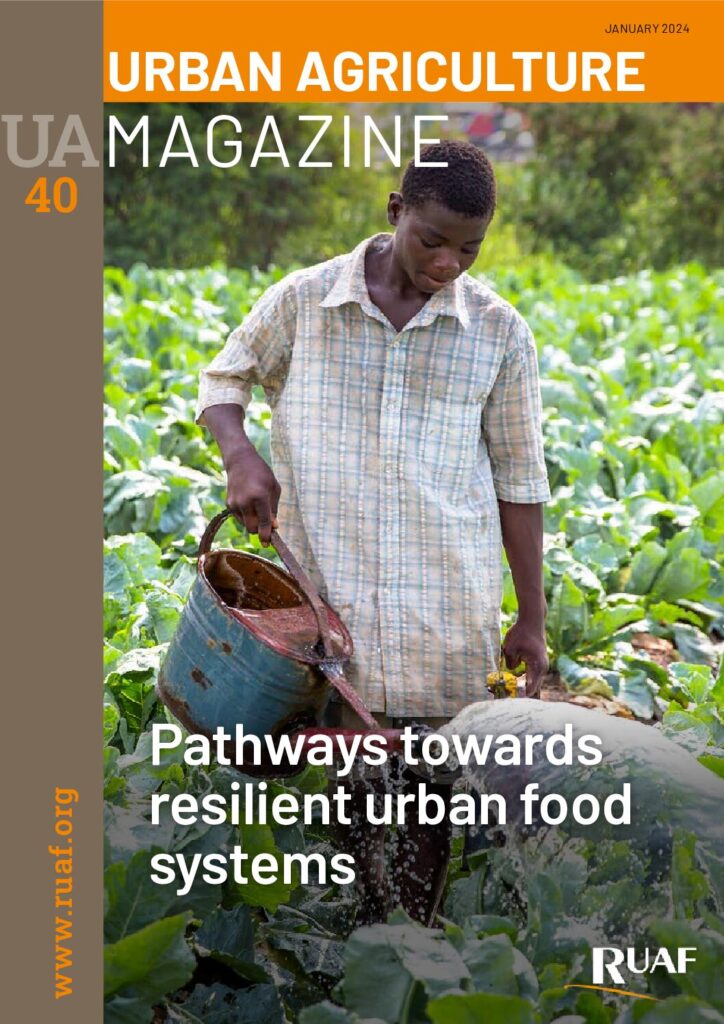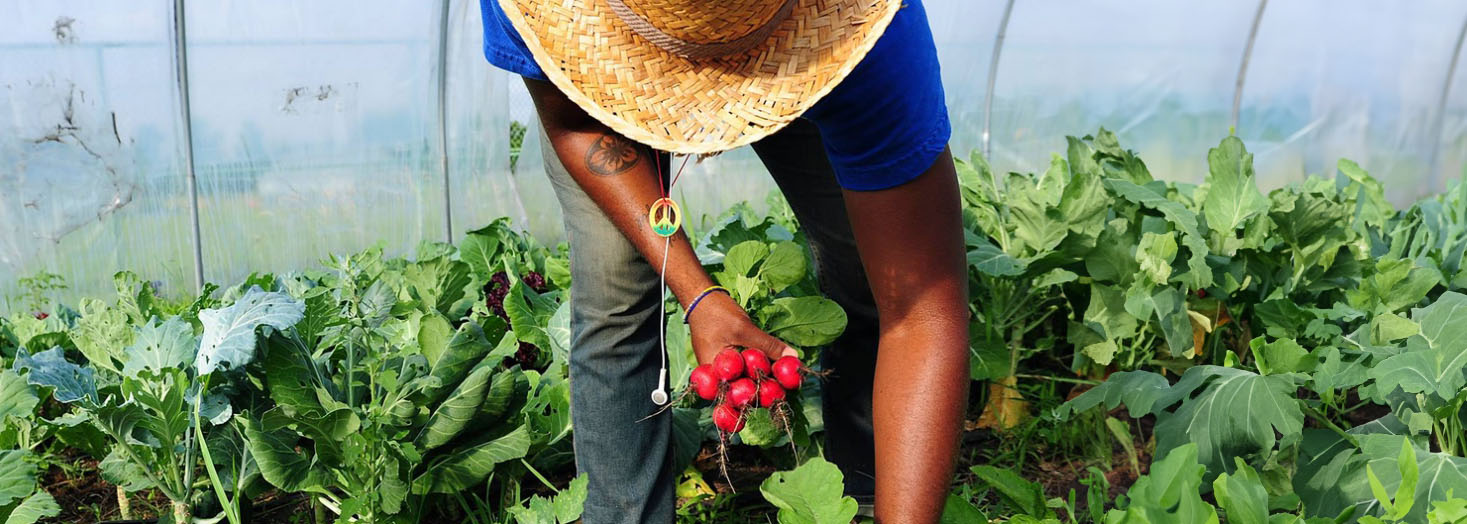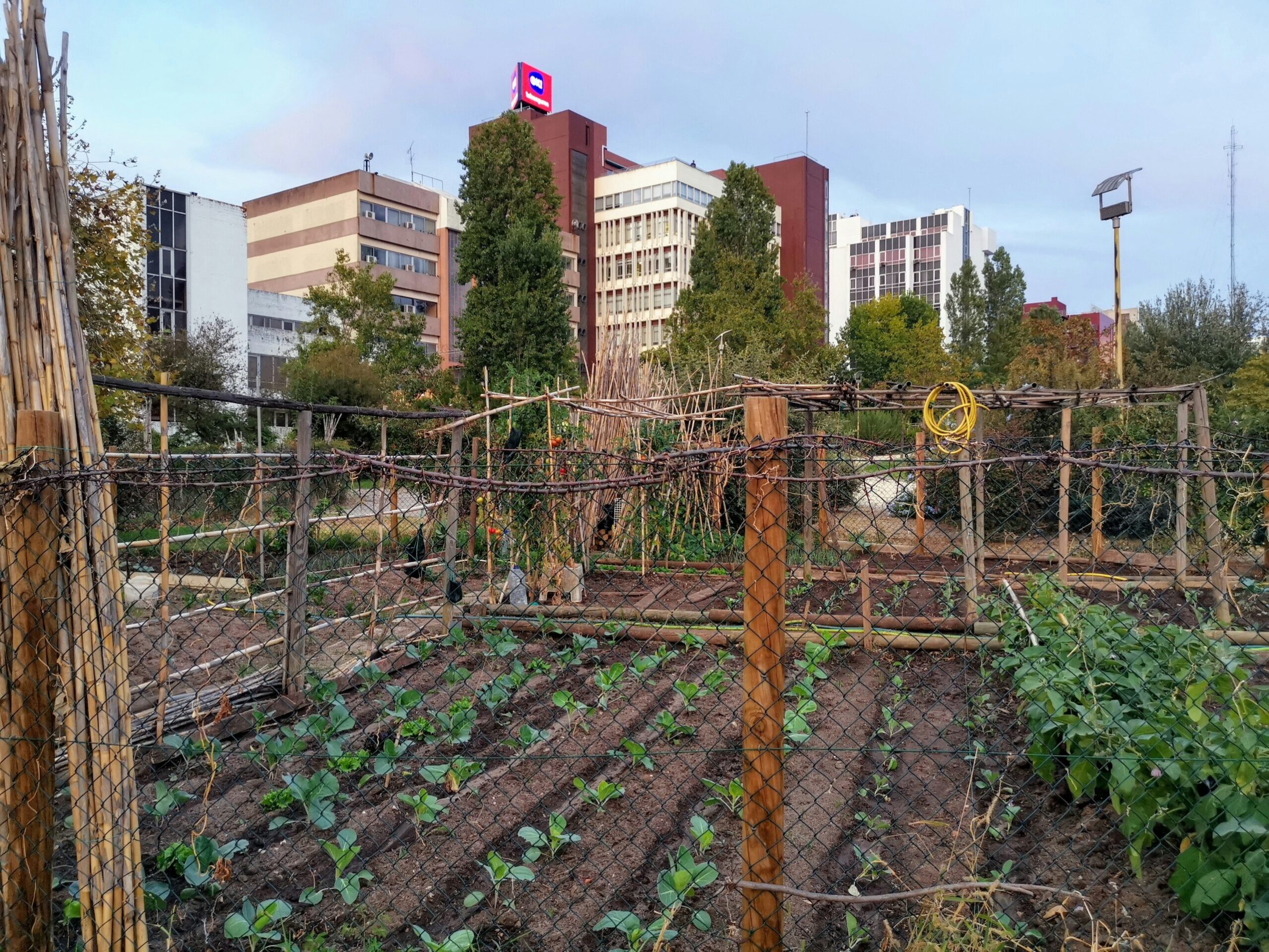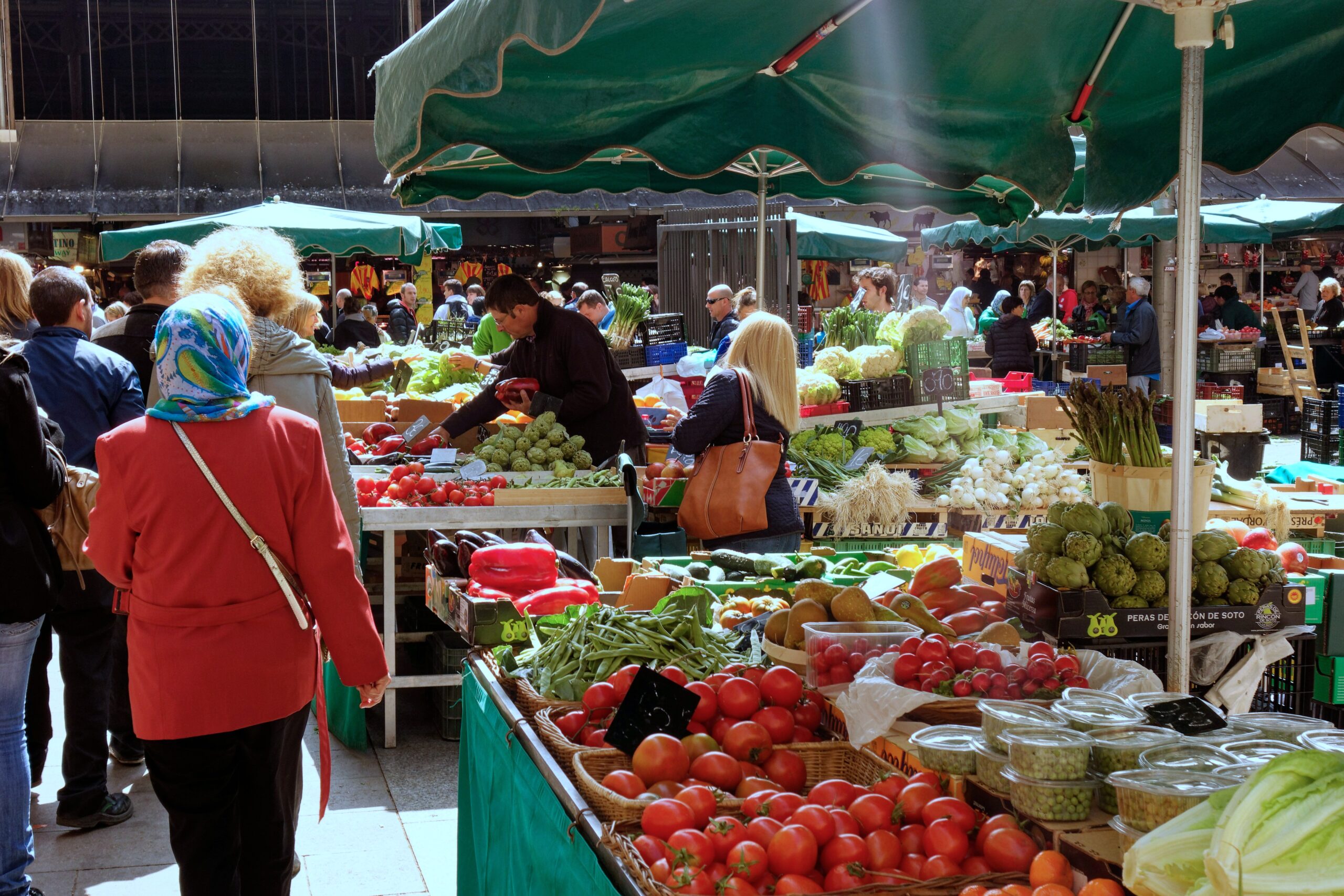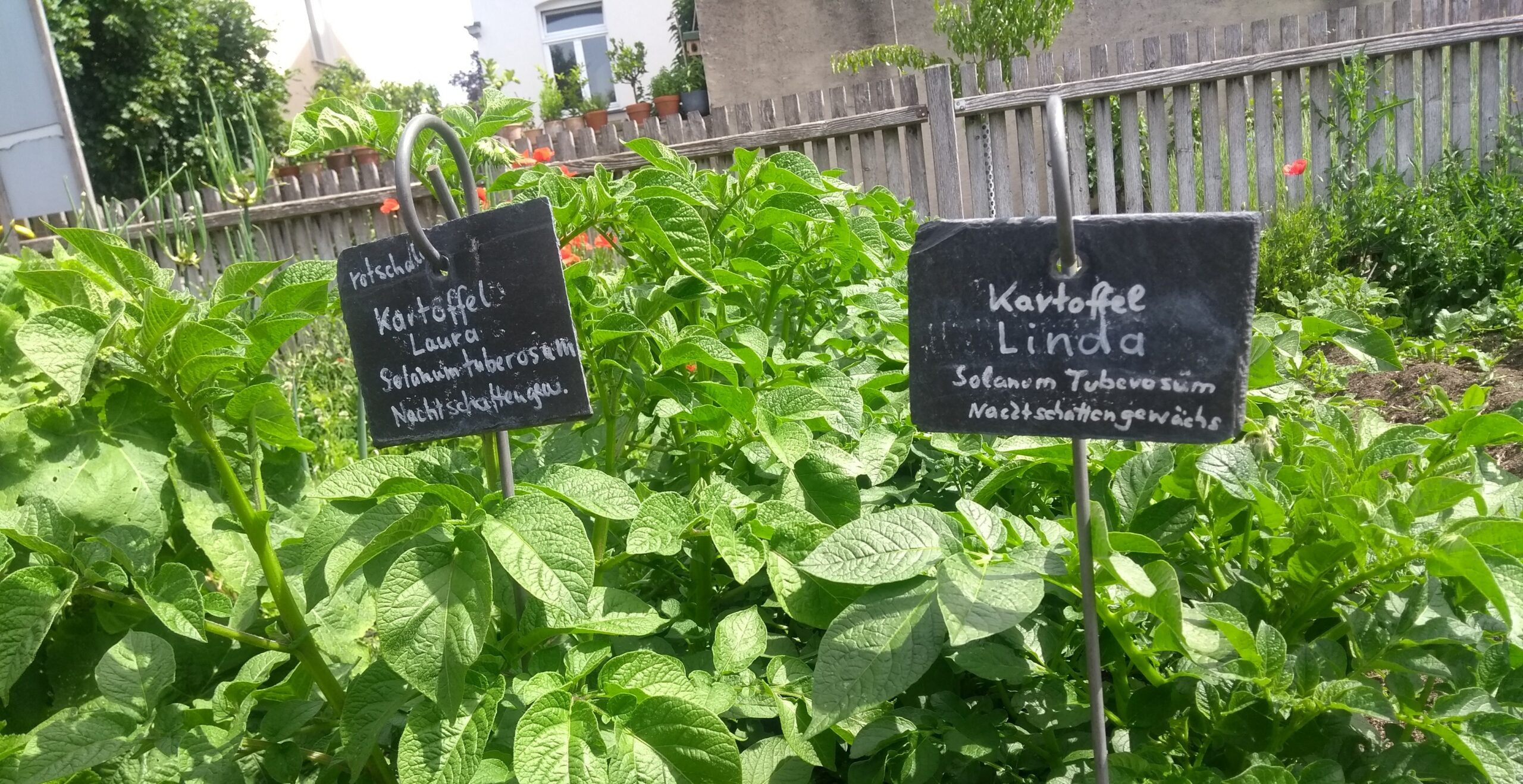The 40th issue of Urban Agriculture Magazine, part-funded by the CGIAR Resilient Cities Research Initiative, showcases innovative approaches, actions, and initiatives for strengthening all aspects of urban and city region food systems.
The world is facing unprecedented challenges. Sudden climate shocks and prolonged stresses are occurring more regularly, while global warming causes complex feedback loops that affect the intensity and impacts of other natural events.
People, assets and infrastructures are vulnerable to the impacts of these hazards throughout food supply chains, from production to consumption and waste management, and the natural resources and ecosystem services on which they depend. Within this unstable context, there is an urgent need to build urban and city region food systems that are both sustainable and resilient to all challenges they may face.
A growing number of cities are putting in place actions to shore up supply chains, resources, and governance (often with the support of international organisations and research institutes). Yet in most places food systems are not yet on the policy agenda – let alone viewed as a crucial component of urban resilience and disaster risk reduction.
The articles in Urban Agriculture Magazine 40 are drawn from across research priorities of the Resilient Cities initiative and supplemented by selected experiences from RUAF Global Partnership and other strategically-aligned organisations.
‘It is critical to harness the experiences of the pioneer cities and city regions that are prioritising food systems resilience, to support knowledge transfer and co-learning over what actions can help build resilience, and how they can be put in different contexts,’ said Jess Halliday, Chief Executive of RUAF.
Actions throughout urban food systems
The publication incudes articles focusing on different stages in food supply and value chains, in different geographies. Examples of resilient food production are the pilot and scale-up of innovative urban gardening technologies in Dhaka, Bangladesh, and efforts to promote healthy tray seedlings in Nairobi, Kenya. These endeavours showcase the potential for sustainable practices to enhance food production in urban environments.
The magazine also explores circularity and natural resource management. An article from the International Water Management Institute discuss how an Innovation Hub in Ghana is driving collaboration and promoting existing Circular Bioeconomy (CBE) approaches. This initiative aims to tackle challenges in urban food systems by fostering accessible innovations and sustainable practices.
The collaboration between CGIAR Resilient Cities Initiative and the Incubagraria business incubator in Lima, Peru, demonstrates how processing startups are developing innovative products to address urban food system challenges. When it comes to vendors, two articles explain the professionalisation of informal market vendors through Vendor Business Schools in Nairobi, Kenya, and Quezon City, Philippines. These schools empower vendors, helping them enhance their businesses and stimulate future investments in the sector.
Understanding consumption and the food environment is crucial, and the magazine introduces AI-assisted apps for cost-effective collection of dietary information. A toolkit to assess and understand dietary challenges in different contexts further enriches the exploration of food systems.
Attention is given to the vital issue of food waste management, with the Urban Eats campaign spotlighting measures in Sydney, Australia, and Milan, Italy.
Finally, the publication underscores the importance of support organisations adopting good practices to provide joined-up support to cities actively building food systems resilience. Interviews with key actors in food systems transformation in Quezon City, the Philippines, and insights from the FAO Green Cities Initiative provide a comprehensive overview of the challenges and opportunities in strengthening urban food systems.
This 40th issue of Urban Agriculture Magazine offers a snapshot of current efforts while inspiring global actors to take action. As we navigate the complex landscape of urban resilience, this collection of articles serves as a catalyst for knowledge exchange, encouraging cities worldwide to embark on the journey of building sustainable and resilient food systems.
